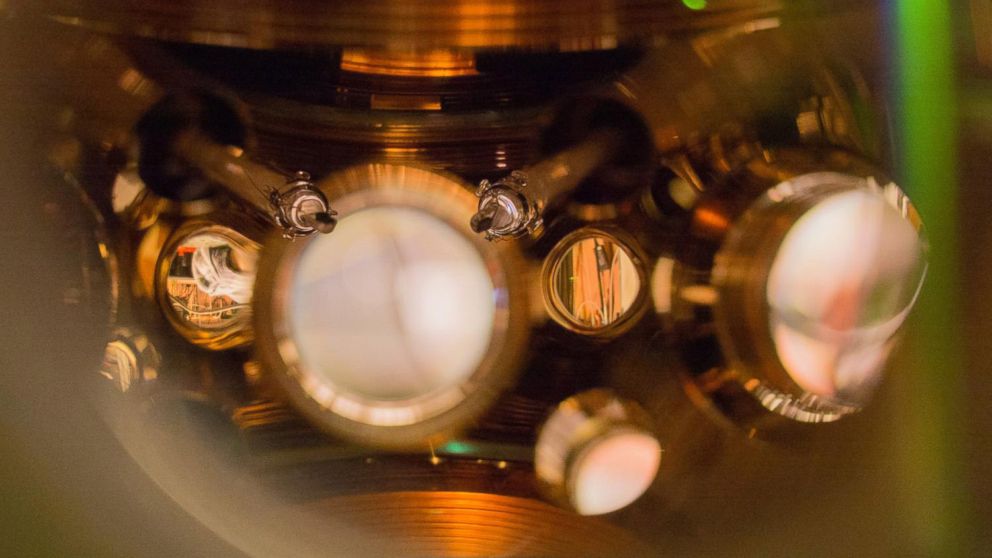New Atomic Clock Is So Accurate It Won't Lose 1 Second in 15 Billion Years
A few tweaks to the atomic clock make it hyper-accurate.

— -- This atomic clock is so precise that researchers say it shouldn't lose a single second in 15 billion years -- which is approximately the age of the universe.
The experimental strontium lattice clock is so accurate that it can pinpoint even the tiniest changes in the clock's ticks if it is raised just two centimeters (less than an inch) on the Earth's surface, thereby reducing the gravity it feels, according to an article published this week in the journal "Nature."
"Time can be intricately connected to gravity," Jun Ye, a physicist at JILA, a joint institute of the National Institute of Standards and Technology and the University of Colorado, Boulder, told the Los Angeles Times. "It sounds like science fiction, but these measurements are a reality."
The clock is said to be three times as precise as it was last year when it set a previous record for its accuracy. The clock's stability, which researchers define as how closely every other tick matches each other, has also improved by nearly 50 percent.
The advancement in time keeping technology could help improve GPS, create even better timekeeping technology and aid in pushing the boundaries of quantum physics, researchers said.




